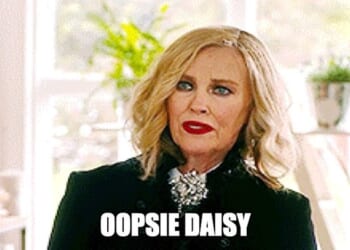The mainstream media, ignorant of Christianity as ever, is bungling its coverage of the beginning of the pontificate of Pope Leo XIV.
Perhaps the worst offender of this is the New York Times, which botched its interpretation of the new pope’s first homily — in two separate articles, no less. One would think that the problem would have been rectified after the first offense. But no, the New York Times has doubled down on its nonsensical interpretation of the pope’s homily.
The Times’ claim is that the pope pledged in his homily to “lift up ‘ordinary people’” and “align himself with ‘ordinary people’ and not with the rich and powerful.” This narrative was featured on the Times’ homepage for hours the day after the pope’s election. While I’m sure the pope will be on the side of “ordinary people” and will seek to lift them up, that is a far cry from what the pope was actually saying in this context. And what he actually has to say about “ordinary people” is really important.
Here’s what Pope Leo XIV said. In his homily, the pope spoke of two erroneous responses to Christ: that He is an insignificant person, and that He is a man of courage and inspiration but who isn’t really God. The first is the response of the “world”; the second is the response of “ordinary people.”
For “a world that considers Jesus a completely insignificant person,” Pope Leo said, Christ’s “presence becomes irksome,” particularly because of “His demands for honesty and his stern moral requirements.”
For “ordinary people” who erroneously view Christ as just an inspirational figure, the pope explained, “the Nazarene is not a charlatan, but an upright man, one who has courage, who speaks well and says the right things, like other great prophets in the history of Israel.”
“That is why they follow him, at least for as long as they can do so without too much risk or inconvenience,” explained Pope Leo XIV in Italian, of these “ordinary people.”
He went on to say that because these “ordinary people” believe Christ is only a man, “in times of danger, during his passion, they too abandon him and depart disappointed.”
Thus, the pope was speaking against ordinary people’s propensity to view Christ as just a “superman.” He was definitely not making a statement about lifting up ordinary people over the wealthy and powerful, as the New York Times said. (“Pope Leo XIV pledged to align himself with ‘ordinary people’ and against the rich and powerful,” said the Times.)
The pope was instead offering an alternative vision to these “ordinary people,” the “patrimony” that the Catholic Church has handed down for two millennia: “Jesus is the Christ, the Son of the living God: the one Savior, who alone reveals the face of the Father.”
The pope posited that when Jesus is reduced to “a kind of charismatic leader or superman,” people end up living “in a state of practical atheism.”
“A lack of faith,” the pope said, “is often tragically accompanied by the loss of meaning in life, the neglect of mercy, appalling violations of human dignity, the crisis of the family, and so many other wounds that afflict our society.”
This is what the New York Times passes over and ignores.
Maybe the Times struggled to understand a Catholic homily on its first pass. But in repeating this concocted narrative that the pope is aligning himself with “ordinary people” over the wealthy, and characterizing it as an all-encompassing message of Leo’s papacy, the Times has crossed over into new territory.
In an article Monday, the New York Times claimed Leo “has spent his first days as pope pledging to align himself with ‘ordinary people.’”
One can only conclude from the repeated and obvious mischaracterization that the Times wishes to conceal from secular audiences what the pope actually said.
Why is the Times fabricating this narrative about the pope’s first days? And will it ever fix this obvious error?
Waiting on you to fix your articles, Matthew Mpoke Bigg, Jason Horowitz, Elizabeth Dias, Emma Bubola, and Richard Pérez-Peña.
READ MORE:
The Spectator P.M. Ep. 137: Pope Leo XIV’s Piety Inspires US Catholics
Pope Leo XIV: An End to ‘Innovation’?




![‘It’s a Recipe for a Hundred Years of National Dominance’: Stephen Miller [WATCH]](https://www.right2024.com/wp-content/uploads/2025/05/Stephen-Miller-Completely-Obliterates-CNN-Host-Over-Her-Illegal-Immigration-350x250.jpg)

![Trump Posts Hilarious Pope Meme, Leftists Immediately Melt Down [WATCH]](https://www.right2024.com/wp-content/uploads/2025/05/Trump-Posts-Hilarious-Pope-Meme-Leftists-Immediately-Melt-Down-WATCH-350x250.jpg)


![Mother Breaks Silence After Three Daughters Killed During Father’s Custody Visit, Memorial Held [WATCH]](https://www.right2024.com/wp-content/uploads/2025/06/Mother-Breaks-Silence-After-Three-Daughters-Killed-During-Fathers-Custody-350x250.jpg)





